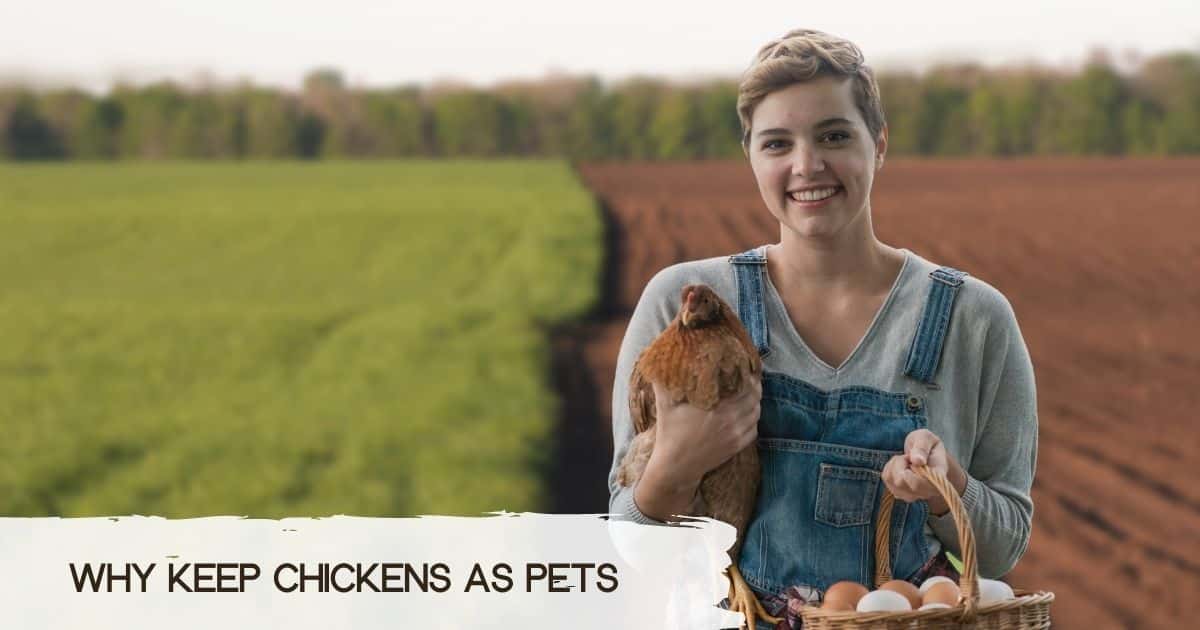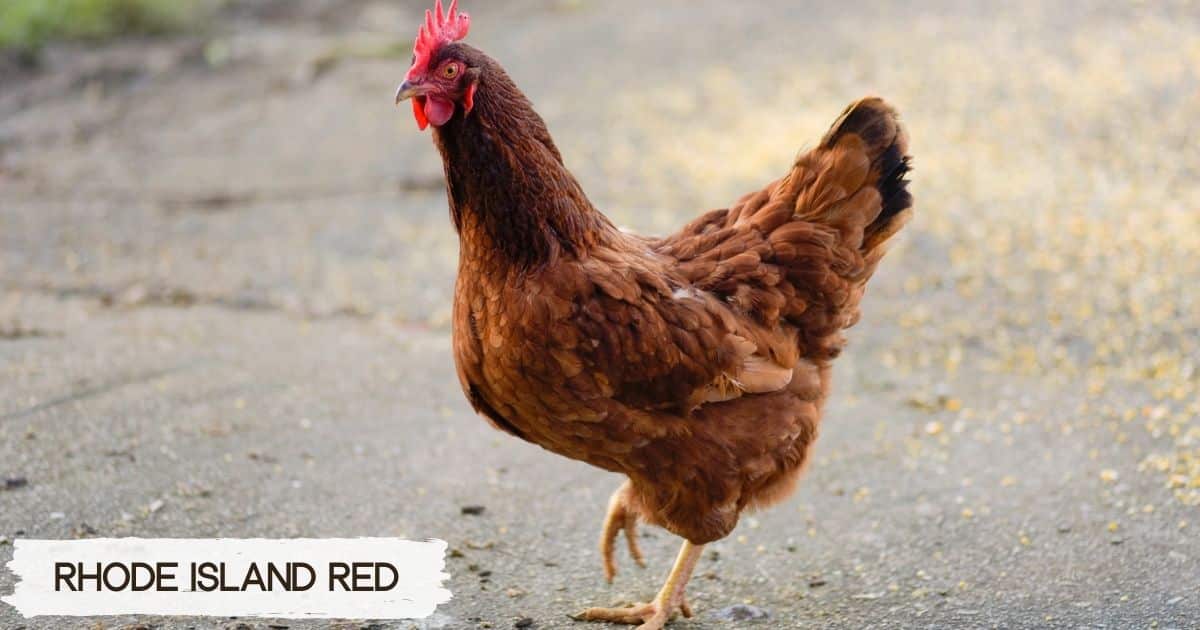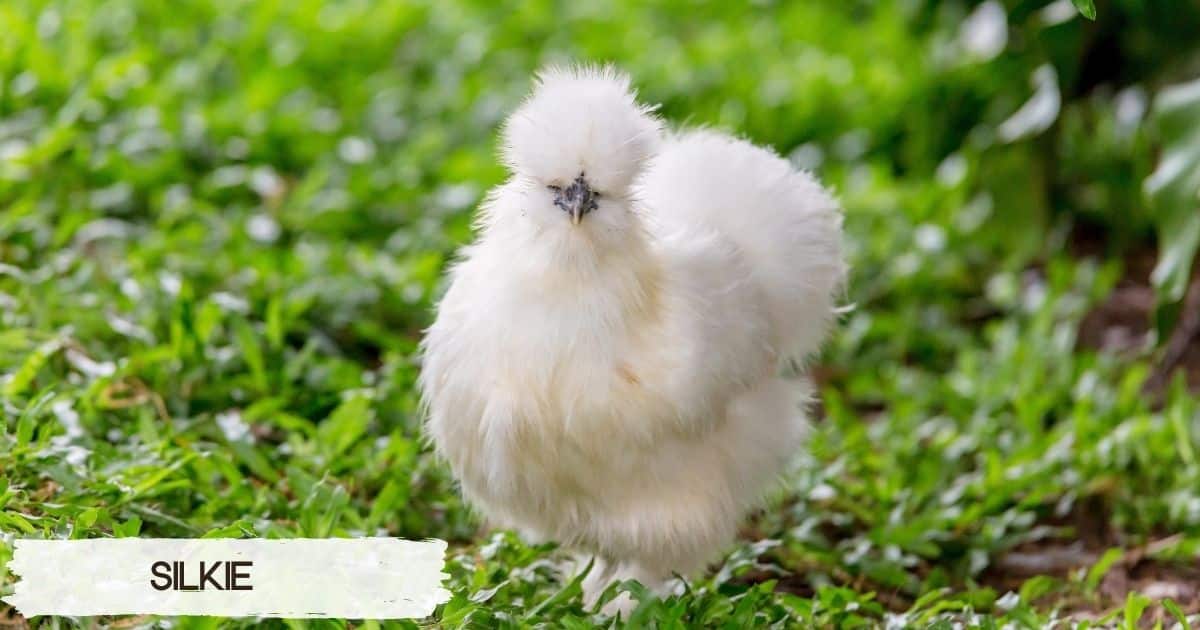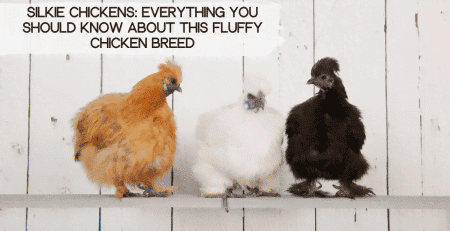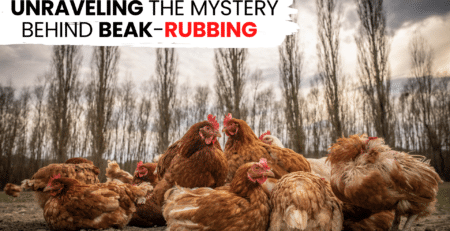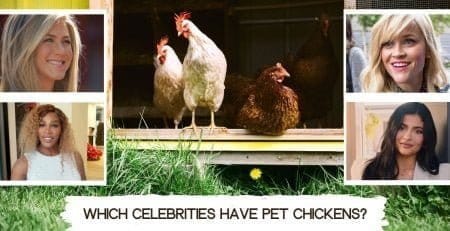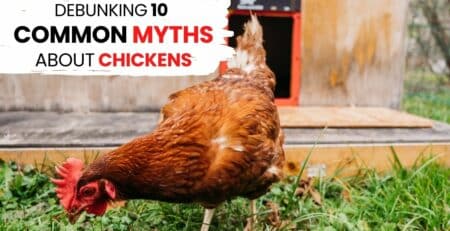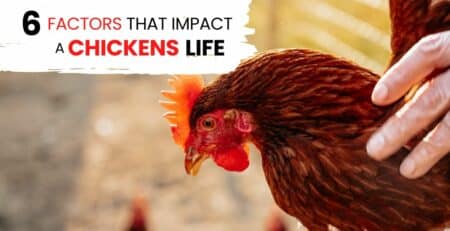Not quite a dog lover? Neighbors have cats, but you don’t see yourself having them? Do you love birds but don’t want to have pets indoors? Are you looking for a fun and easy-to-care-for animal? Pet chickens make a wonderful choice. Not only are they cute and colorful, but they can also provide you with eggs and teach you about the value of nature in your daily life. Read on to learn how to choose your flock and what to expect when caring for them. You’ll be glad to have pet chickens.
Keeping pet chickens is a great way to provide organic eggs and new feathered friends to your family. Although they require little maintenance, you will need to provide adequate food and water, as well as plenty of space to roam and socialize. Chickens are not aggressive animals, but you should be careful not to let them get into fights with other household pets.

What are the Pros and Cons of Keeping Pet Chickens?
Quick Pros:
- Pet chickens provide you with fresh eggs every day.
- Chickens can make for fairly low-maintenance and quiet pets. Plus, they’ll typically provide you with an abundance of eggs, and you’ll have the benefit of knowing where the eggs are coming from. However, chickens do need a specialized housing setup and some space to roam. And they must be protected from predators and the elements.
- Low upkeep costs.
- Chickens can be good pets for children who are able to be gentle around them.
- Chickens are excellent compost shredders.
- Better pest control in your garden or orchard. Chickens love bugs, and they are quick to eat them.
- Fertilized garden or outdoor area.
- Quick compost of your household waste. Chickens eat a lot of food, so they help turn our leftovers into quick manure that can quickly compost.
- They can spread mulch efficiently. Chicken can level a large mulch pile very quickly and efficiently. If you want to spread mulch or compost, you can make a pile of material where you need leveling and then close your chickens in with a fence. When they are done, you can remove them and start gardening in that area.
- Lots of fun being with your pet chickens.
- Pet chickens are beautiful to look at.
And the list could go on.
Quick Cons:
- Predators like chickens. To ensure your flock’s safety install Run-Chicken automatic coop door.
- In your living area look for local ordinances that permit them.
- Manure issues. Too much or too little? You always have to balance the number of chickens outside and remove manure if necessary. Make sure that your chickens’ manure is put away regularly and composted correctly. If waste is left to pile up, it can attract flies and becomes toxic.
- Rodents: Rotting vegetative materials may attract pests such as rats. Putting food scraps in an open composting system can easily create a rat habitat that is hard to exterminate. Food scraps can be given directly to the chickens in an exact place where they are or must be placed in closed systems like bins.
- You need to keep a careful watch on your surroundings and the garden and protect plants for a while. Chickens love to make holes and peck at small plants. All you need to do is keep a close eye on them or make fences that protect your vegetation.
- Consider that it may also be difficult to leave home and find someone to look after them while you are gone.

For Chicken and egg lovers the list stops here 😊.
Which chicken breed is the right for you?
Think of pet chickens like dogs or cats, there are lots of breeds, and they all have different personalities. You should consider chickens’ size and personality before choosing a flock to keep as pets. So, pick your favorite pet chickens from our list of best breeds for chicken keeping.

Australorps
| Care level | Easy |
| Friendly | ✔️ |
| Diet | They are herbivores. Like berries and fruit for treats |
| Colors | Black, white and blue. |
| Size | Males weigh 8.5 lbs, and females weigh 6.5 lbs. |
| Behaviors | Independent, active, gentle. |
| Characteristics | Productive and fast-growing. |
| Egg production | Excellent, make 4-6 large brown eggs per week, lays in the winter too. |
| Life expectancy | 8 years or more |
| Space requirements | Free-range or caged with space. Like to forage and peck. |
| Minimum coop size | 2-3 square feet per chicken. |
| Compatible with other hens | ✔️ |
| Health problems | Lice, mites, worms. |

Brahmas
| Care level | Medium |
| Friendly | ✔️ |
| Diet | The food you feed them must be high in protein at least 18%, for better eggs, you can give them, supplements. Like worms, and crickets for treats. |
| Colors | Dark, buff, light, white, gold, blue partridge. |
| Size | Males weigh 10 lbs, and females weigh 8 lbs. |
| Behaviors | Docile, peaceful, gentle, friendly, calm, trusting, love attention, can be handled, and can grow quite attached to their owners. |
| Characteristics | They are pretty big and can’t fly, making them easy to contain. |
| Egg production | Excellent,4-6 large brown eggs per week, lays in the winter too. |
| Life expectancy | 5–8 years |
| Space requirements | Free-range or caged with space. Like to forage and peck if the space allows it. |
| Minimum coop size | 5-8 square feet per chicken. |
| Compatible with other hens | ✔️ |
| Health problems | Lice, mites, worms. |

Cochins
| Care level | Easy |
| Friendly | ✔️ |
| Diet | They can eat more than other chickens in colder climates and produce more eggs. They are predisposed to becoming too fat, leading to bad health. They should receive a daily intake of green food to keep them healthy. |
| Colors | Buff, partridge white, black, silver laced, golden laced, blue, brown, and barred. |
| Size | Males weigh 11 lbs, and females weigh 8 lbs. |
| Behaviors | Calm, docile, and friendly. |
| Characteristics | They like to brood more than other breeds. They can also brood for turkeys and ducks. Also, withstand cold climates. |
| Egg production | Alright, 3-4 medium to large brown eggs per week, exclusively prefers laying in the winter. |
| Life expectancy | 5–8 years |
| Space requirements | Don’t like to free-range, but must encourage because they easily gain weight. |
| Minimum coop size | 4 square feet per chicken. |
| Compatible with other hens | ✔️ |
| Health problems | Lice, mites, worms, obesity, feet and toe problems, because of feathers. Ideally use sand in the run as this will be better for their feet. |
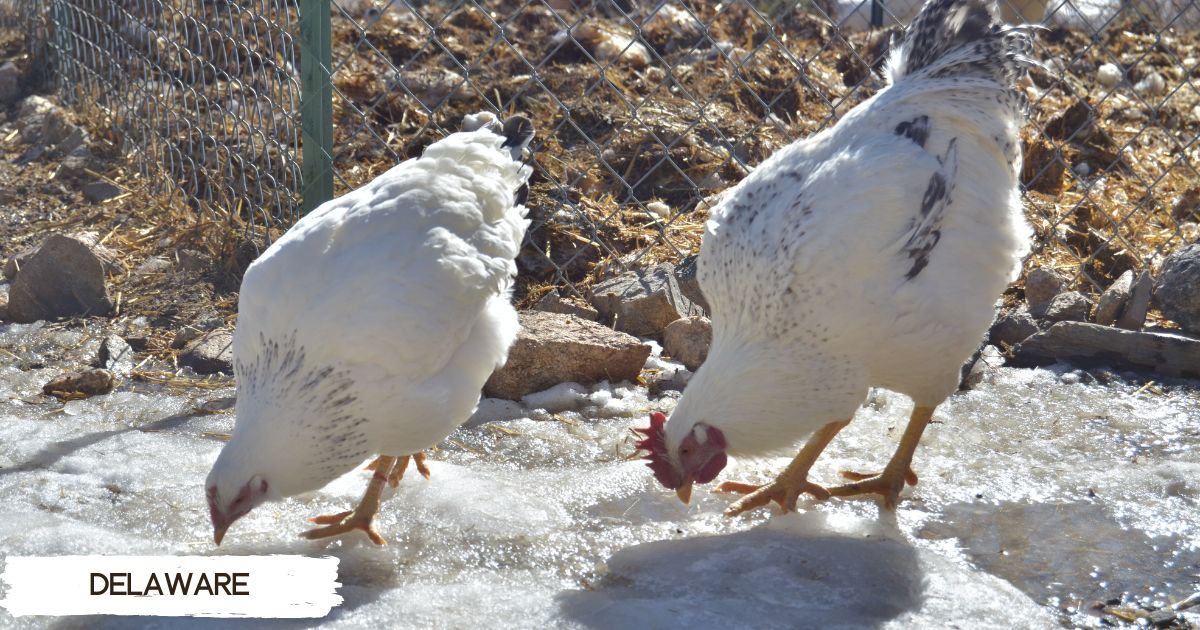
Delaware
| Care level | Easy |
| Friendly | ✔️ |
| Diet | The food you feed them must be high in protein, at least 20-24%; for better eggs, you can give them supplements, like worms and crickets for treats. |
| Colors | White and black. |
| Size | Males weigh 8 lbs, and females weigh 6 lbs. |
| Behaviors | Calm, inquisitive, and friendly. Fairly assertive but do stand up to others. |
| Characteristics | Have a deep and broad body, a single comb with five points. Legs are quite muscular. |
| Egg production | Excellent, 3-4 large brown to cream-colored eggs per week, lay fewer in winter. |
| Life expectancy | 5+ years |
| Space requirements | Free-range or supervise free range a couple of days a week. |
| Minimum coop size | 8 square feet per chicken. |
| Compatible with other hens | ✔️ |
| Health problems | Lice, mites, worms. Overall, a healthy breed with few problems. |

Easter Eggers
| Care level | Easy |
| Friendly | ✔️ |
| Diet | You can give a special chicken layer feed like to any other chicken breed. These birds produce many eggs, so they need extra calcium and protein supplements in the form of treats or feed. Also, mealworm and live-culture yogurt are advised several times a week. Treats can be in the form of fruit and vegetables. |
| Colors | They are hybrid species created when people started crossbreeding Araucanas or Ameraucanas so they come in various colors and sizes. |
| Size | Males weigh 6 lbs, and females weigh 3 lbs. |
| Behaviors | Gentle and happy. Their character goes well with Cochins. Like approaching humans for treats or petting in a lap. |
| Characteristics | Quite small in size. Take the appearance of their parents. |
| Egg production | Excellent, 3-4 all sizes and colors eggs per week, lay less in the winter. |
| Life expectancy | 5–8 years |
| Space requirements | Free-ranging. If cannot they do tolerate tighter confined living. |
| Minimum coop size | 2-3 square feet per chicken. |
| Compatible with other hens | ✔️ |
| Health problems | Lice, mites, worms. If they have more feathers you should tend to their cleanliness more. |
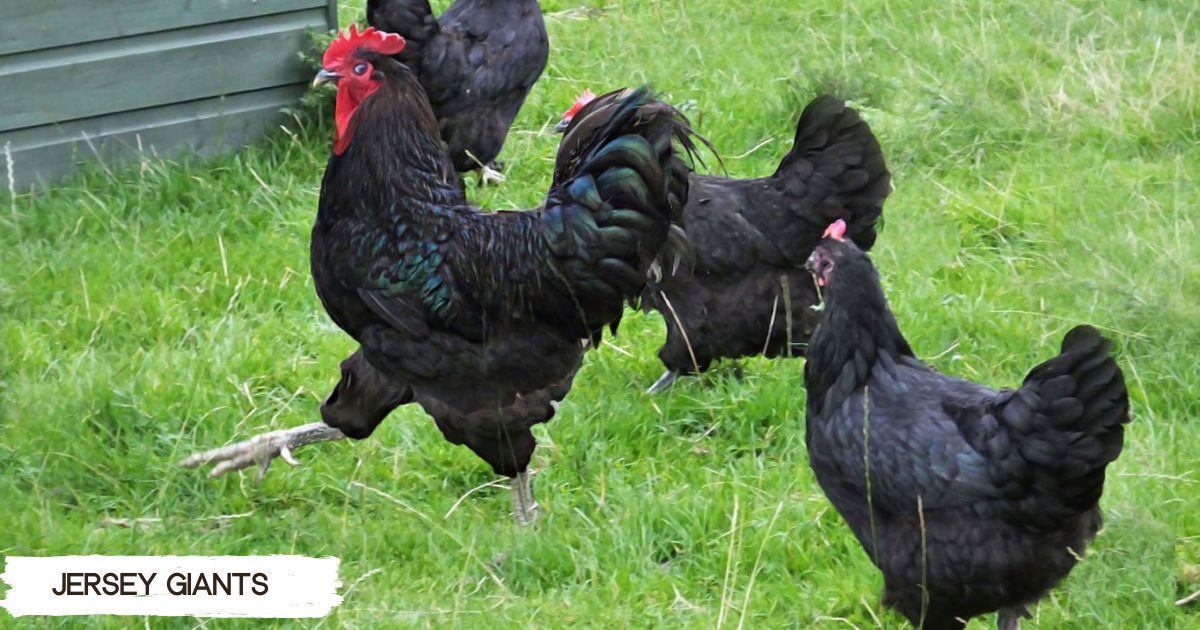
Jersey Giants
| Care level | Medium |
| Friendly | ✔️ |
| Diet | Like other breeds, they are not prone to obesity, so they can eat much more than other birds. They like to be fed freely and like to forage. |
| Colors | Black, white, and blue. |
| Size | Males weigh 13 lbs, and females weigh 10 lbs. |
| Behaviors | Gentle and very friendly. Have good vigor, and fine foraging ability. |
| Characteristics | Very large, even larger than the Brahma breed. They mature rapidly. |
| Egg production | Excellent, 3-5 large to medium, brown to cream-colored eggs per week, lay fewer in winter. |
| Life expectancy | 8+ years |
| Space requirements | Free-ranging is a must, don’t tolerate tighter confined living. |
| Minimum coop size | 6-8 square feet per chicken. |
| Compatible with other hens | ✔️ |
| Health problems | Lice, mites, worms. No other big health problem. They do like to jump so watch out for strained feet and make smaller perches. |

Polish Chicken
| Care level | Easy |
| Friendly | ✔️ |
| Diet | The food you feed them must be high in protein, at least 16%; for better eggs; you can give them supplements like worms and crickets for treats. |
| Colors | Silver, golden, buff, blue. |
| Size | Males weigh 7 lbs, and females weigh 4 lbs. |
| Behaviors | Calm and inquisitive. They can become nervous if a lot of noise is surrounding them. They are non-sitters and rarely brood. |
| Characteristics | These chickens come with or without beards on their faces. Their crests tend to obscure their vision, which makes them more prone to aerial predators because they don’t see them. |
| Egg production | Poor, 2-3 medium-sized white eggs per week, lay fewer in winter. |
| Life expectancy | 8+ years |
| Space requirements | They like to free-range under supervision. They will tolerate confinement very well. |
| Minimum coop size | 1-2 square feet per chicken. |
| Compatible with other hens | ✔️ |
| Health problems | Lice, mites, worms. They have more head feathers so you should tend to their cleanliness and dryness more. |
Rhode Island Red
| Care level | Easy |
| Friendly | ✔️ |
| Diet | They like to free-range so they find a lot of their food by themselves. Nonetheless, 16% of protein food is recommended. |
| Colors | Dark red. |
| Size | Males weigh 7 lbs, and females weigh 6 lbs. |
| Behaviors | Very curious, like to forage, they are stress-free animals that don’t get scared easily. Friendly but are higher in the pecking order than shier birds. |
| Characteristics | Hardy animals can handle questionable conditions and an imperfect diet. |
| Egg production | Excellent, 3-6 medium-large light brown eggs per week, lay fewer in winter. |
| Life expectancy | 8+ years |
| Space requirements | They need a lot of space because they do not tolerate confinement. Build nesting boxes for only one hen because they tend to nest together. |
| Minimum coop size | 4 square feet per chicken. |
| Compatible with other hens | ✔️ |
| Health problems | Lice, mites, worms. Overall, a healthy breed with few problems. |
Silkie
| Care level | Medium |
| Friendly | ✔️ |
| Diet | The food you feed them must be high in protein, at least 16%; for better eggs, you can give them supplements in the form of fresh greens from time to time a week. |
| Colors | Black, blue, buff, gray, partridge, self-blue (lavender), splash, white. |
| Size | Males weigh 4 lbs, and females weigh 2 lbs |
| Behaviors | Male and female are calm and docile. Some people have them as house pets and hens in particular are suitable for apartments since they are so quiet. |
| Characteristics | Slightly smaller chickens with a soft and furry coat in touch and appearance. Very quiet. They cannot fly so you must watch them at all times. |
| Egg production | Poor, 1-2 small and cream-colored eggs per week. Don’t lay in the winter. |
| Life expectancy | 7–8 years |
| Space requirements | They need a lot of inside room as well as outside room. |
| Minimum coop size | 5-8 square feet per chicken. |
| Compatible with other hens | ✔️ |
| Health problems | Lice, mites, worms. They are an overall healthy breed, but they need more grooming and have their feet cleaned and checked periodically. |

Sussex
| Care level | Easy |
| Friendly | ✔️ |
| Diet | They put on fat very quickly; they lay eggs best if not allowed to get overly fat. In their diet, you must include low-calorie food and even meals thought the day. Also, choose low calory snacks. |
| Colors | Red, speckled, brown, and silver. |
| Size | Males weigh 9 lbs, and females weigh 6 lbs. |
| Behaviors | Docile, rather happy and curious birds. Following people for treats. |
| Characteristics | Is large and graceful chicken with broad shoulders. They are bad flyers. It is easy to keep them penned with low fences. |
| Egg production | Excellent, 3-5 large brown eggs per week, lay during winter. |
| Life expectancy | 8+ years |
| Space requirements | They need quite a lot of space outside and inside. If you raise them with more assertive breeds, they will need approx. 6 square feet of space since aggressive birds can pick them. |
| Minimum coop size | 4 square feet per chicken. |
| Compatible with other hens | ✔️ |
| Health problems | Lice, mites, worms, and comb problems have to be protected with petroleum jelly because of frostbite. |
Others pet chickens that are also nice to keep are: Orpingtons, Wyandotte, Faverolles, Leghorn, Plymouth, Sultan, Barbu d’Uccle, and Sebright.
You should avoid picking Barred Rock, Old English Game, Cornish, Oriental Game chickens, especially roosters, as these breeds are known for being very aggressive and in some cases were bred for fighting.
Tell us which breeds you chose for pet chickens on our FB, IG, or tag us in your TikTok video.

